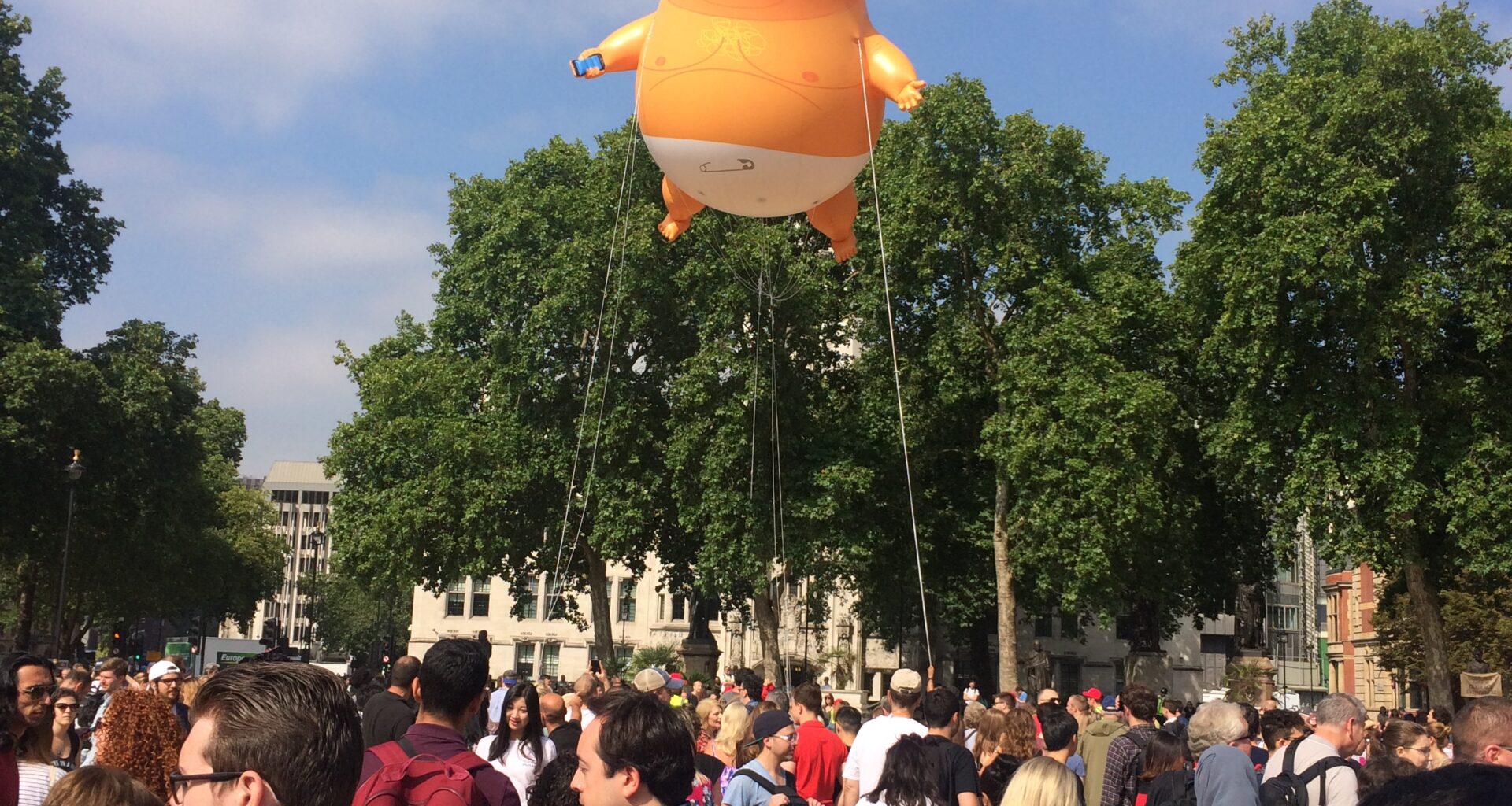This is the second part of my interview with Jonathan Sumption. The first part was on the pandemic and the consequences of lockdown. In Part II, the discussion turns to the problems with Brexit, Sumption’s reasons for continuing as a judge on the Hong Kong Court of Final Appeal, his career at the Bar and the ways in which it has changed over the years, and his love of medieval history and opera. – Emma Park, Editor

Looking back before the pandemic, the events surrounding Brexit were conducted with bitterness on both sides, from the referendum campaign and the allegations of misrepresentation to the refusal of Jeremy Corbyn to resign as Labour leader after the referendum results; from when Boris Johnson took over as Prime Minister in July 2019 to when he ordered the prorogation of Parliament in August that year. By the end of 2019, to what extent had the Brexit upheaval already damaged British democracy?
That is a difficult question to answer on the basis of the relatively short period between the referendum and now. The referendum was an attempt to introduce an element of direct democracy into a fundamentally parliamentary system. That inevitably created serious tensions, as we saw between 2016 and 2019. The reason why we had a referendum was that all parties in Parliament supported continued membership of the EU, although with different degrees of enthusiasm. There was therefore a feeling that the only way in which the people could have any say was to have a referendum. The problem was that the referendum left unanswered one of the major questions, namely, once we have left Europe, what are to be our relations with it thereafter? That was a question that was not on the ballot paper, and about which people had widely differing views, even among those who voted to leave. It generated a parliamentary crisis until Johnson won an overall majority in December 2019.
It is difficult to say how far the consequences continued (and will continue) beyond December 2019. Certainly in the Johnson government, they induced a contempt for Parliament and a desire to sideline it. This took its most extreme form in the prorogation of Parliament in August 2019. That was a wholly undemocratic and unconstitutional act, as the Supreme Court subsequently found.
[Further discussion in Law in a Time of Crisis, chapters 9-10.]
Did you support remaining in the EU?
I did, and I still would if the question arose again, which of course it won’t.
Had it not been for the Brexit upheaval and then the Johnson government’s disrespect for Parliament in 2019, would the British public still have accepted the lockdowns as readily as they did?
Yes. They accepted it because they were frightened. Fear did not have any impact one way or the other in the Brexit debate.
What was the Brexit debate about?
It was a debate about identity, control and autonomy. A small majority felt that these things were worth having even at some economic cost. I have considerable sympathy for that point of view. The reason why I was and am an unrepentant Remainer is that the search for control and autonomy is an illusion. We are going to be dominated by the enormous single market next door to us, whether we are a member of it or not. The only difference that our not being a member of it makes is that we have no control over what it does, whereas we had quite a powerful voice before.
For some 500 years or more the consistent principle of British foreign policy has been to prevent a single power dominating the European continent. While we were members of the EU, we were very successful in retarding the political consolidation of Europe because we thought, rightly, that it was against the interests of the United Kingdom. By withdrawing, first of all, we have made it more likely that there will be an eventual fusion into an enormous political bloc, and secondly, that we have no influence over how that bloc behaves. The result that five centuries of British statesmanship have sought to avoid has now been achieved by our own voluntary decision. I think that was unwise.
Is there any way back from that decision?
No.
Why would the political consolidation of Europe not be in Britain’s interests?
First, we have a legal and political culture which is different from that of Europe. We have some economic interests which are different from those of Europe, although for the most part, our economic interests are aligned. Secondly, it is difficult for democracy to survive in a wholly transnational world, because it depends on a sense of common loyalty, which is difficult to achieve on an international scale. Those are also reasons why I think other European countries should not want a greater degree of integration, but that is their business.
Talking of transnational law, would you support Britain leaving the European Convention on Human Rights?
First of all, that is not politically feasible. There is not the support for it in the House of Commons or, I suspect, in the population at large. I would prefer to see an accommodation between the aggressively expansionary interpretation of human rights which has sometimes been taken by the European Court of Human Rights in Strasbourg and the rather more cautious approach traditionally taken by the British courts. I have no problem with the basic rights in the text of the Convention itself.
I do have a problem with the additional rights which that Court has effectively invented without any kind of democratic endorsement. For example, Article 8, which protects private life, has been stretched beyond recognition. Another example is the way in which the Strasbourg Court has applied the Convention to military operations outside the geographical area which it covers. This was never intended. It has made the operations of British peacekeeping forces in countries like Iran and Afghanistan extremely difficult.
[See further Sumption’s Trials of the State, chapter III, and this response by Róbert Spanó, former ECtHR president.]
On a different topic, in December 2019 you were appointed as a non-permanent judge of the Court of Final Appeal in Hong Kong. Do you think the rule of law still exists in Hong Kong?
I am not prepared to answer that question. There is a convention in England and in Hong Kong that serving judges do not comment on political issues. The first point I would make is that, so far, it is impossible to form a definitive judgement on the point that you raise because none of the major issues, apart from those concerning bail, have reached the appellate courts. The Court of Final Appeal on which I sit has not had to pronounce on them yet. We will not know what the answer to your question is until they have.
The second point is this: there only one question that I ever asked myself about my presence on the Court of Final Appeal in Hong Kong and that is whether my withdrawal would help the people of Hong Kong whom, in that capacity, I serve. It seems to me that the obvious answer to that question is no.
Those who press for the British judges to withdraw from the Court of Final Appeal in Hong Kong are asking them to engage in a political demonstration against the policies of the Chinese government. I cannot see how that will help the people of Hong Kong. More generally, it is not the function of serving judges to engage in political demonstrations, and I do not intend to do so. There may come a point in any society when, even if the rule of law is honoured, the substance of the law is so repellent that judges should withdraw rather than have to apply it. But we have not got to that stage.
By remaining on the court, aren’t you indirectly endorsing the Chinese regime?
I am directly endorsing the independence of the court in which I sit. I am not endorsing anything else. I am confident that the Court of Final Appeal is entirely committed to the rule of law. I believe the same to be true of judges in the lower courts.
[Other former House of Lords/Supreme Court justices on the court include Lords Hoffmann, Neuberger, Walker, Collins and Phillips.]
You were called to the Bar in 1975, and started to practise at Brick Court Chambers at the end of 1977. How far has the English Bar changed over the period that you have been there?
Quite a lot. It has become much more regulated, sometimes in ways which undoubtedly mark an improvement, sometimes in ways that are less admirable. Parts of the Bar, particularly those dependent on the legal aid system – crime and matrimonial work – are in a very bad way. We shall find it increasingly difficult to attract talent to these areas unless something is done about that. Other parts of the bar, particularly the specialised tax, commercial and public law Bar, are busy and prosperous – so that we really have two Bars. That is very unfortunate and has undermined the Bar’s basic solidarity.
The Bar has an enormous amount going for it. The things it has going for it are the same things that it had going for it before. It is a profession that encourages independence of mind; it has no hierarchy – you find your level according to your talents or lack of them. In the world of law, the Bar is where the magic is. It is an area on the margins of public life in which barristers have a huge amount to contribute to the quality of our public affairs.
During your legal career, are there any particularly striking features of the way that English law has developed?
Public law has become more important. It was already beginning to become more important when I became a barrister in the mid ’70s, but the process has become more significant since then. Law has come to occupy a more important place in English life. I discussed this and the reasons for it and its consequences in my Reith lectures [published as Trials of the State]. Some of the consequences have been wholly admirable, but some have not.
What would you say were the highlights of your career, first as a barrister and then as a judge?
It is hard to single out particular examples. I had cases which I was particularly proud of having won and particularly embarrassed at having lost. My biggest client in the latter period of my time at the Bar was the government. I did a lot of cases involving alleged scandals – I enjoyed doing those. I hope that my role, both as an adviser to government and as an advocate in the courts, was constructive. I believe it was. Others may disagree.
Often in the Supreme Court finds oneself agreeing just in one sentence with the judgment of someone else. But even when one writes the sole judgment, with which the others agree, the work of the Court is genuinely collective. The fact that one’s name appears on the judgment does not mean to say that others have not made a very significant contribution to it. I suppose that the judgment that I wrote on Nicklinson (2014) about assisted suicide was one of which I am proud, although many people would disagree with it. It exposed some of the dilemmas of an emotionally difficult area of law. My view was that the issue was for Parliament and not for the courts.
As a historian, you have published four volumes on the Hundred Years War, among other things, and a fifth is due in 2023. What is it about the late medieval period that fascinates you?
What fascinates me most is that it is possibly the last period in European history when it is possible to have read almost everything. There are big holes in the source material, and that means that there is plenty of room for informed speculation. These things make it particularly interesting. If you study 19th or 20th-century history, you are drowned in material. You are forced to select relatively arbitrarily what you can read. That means that the scope for error is much greater.
I also think that late medieval civilisation was particularly beautiful in some ways – of course, hideous in others. Its artistic and literary achievements were wonderful. Ultimately medieval men and women were like us. They knew less about the world and therefore less about how to solve its problems. But they faced substantially the same dilemmas. Humanity changes remarkably little. What changes is their technical and administrative capacity. The means which they deploy have become more effective, but unfortunately, their moral sensibility has not increased in keeping with it. That is one of the great tragedies of mankind. But the basic motivation of people is the same in the 21st century as in the 15th, for better or for worse.
What do you particularly like about opera as an art form?
I am very fond of music generally, not just opera. What opera offers is a direct route into one’s emotions. It simplifies human motivation and emotions, but it also intensifies them. It is therefore a tremendous artistic experience, both for those who perform it and for those who watch it. There are very few artistic experiences in the same class.
Final question: what next? Are there any projects you are working on at the moment?
I have just finished my final volume on the Hundred Years War, and after 43 years, I am now contemplating a large void in my life. I am not sure what I am going to fill it with. At the moment, I am doing some preliminary research with a view to writing about the Italian wars of the 16th century, primarily those in which France was engaged, but I do not know whether I shall write about that. It depends on whether I am as interested in the subject when I finish the preliminary research as I was when I began it.
Enjoy this article? Subscribe to our free fortnightly newsletter for the latest updates on freethought from a culturally liberal, politically unaligned perspective.









Your email address will not be published. Comments are subject to our Community Guidelines. Required fields are marked *
Donate